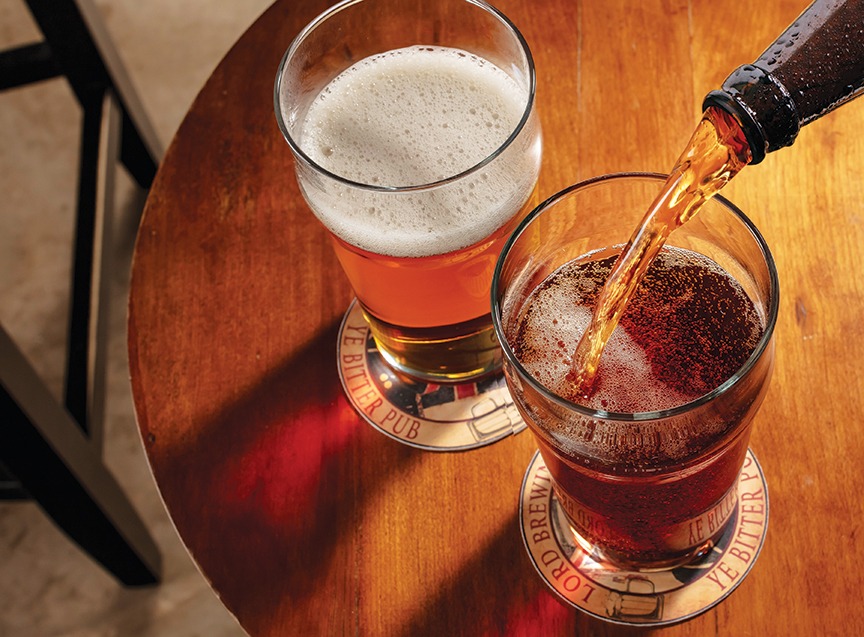Build a Spice Infuser
Make this “suspended spice infuser” which will allow you to add spice additions to, and remove them from, your beer with ease — and without requiring you to rack the beer.
Don’t miss our New England Beer & Baseball adventure in 2026! Click here to register!
Hop substitution strategies, new recipes for new varieties of hops, grow your own hops, and profiles on available varieties.

Make this “suspended spice infuser” which will allow you to add spice additions to, and remove them from, your beer with ease — and without requiring you to rack the beer.

You can think of this beer as a cross between a wit beer and and a schwarzbier, although it is not quite that dark. Venkman’s Vit is finished with Sterling hops (whose character is seen by some as a cross between Saaz and Mt. Hood hops) and spiced with the zest from an Oro Blanco Grapefruit (which is a cross between a grapefruit and a pummelo) and should appeal to anyone who thinks that “crossing the streams” might be a great idea.

In the March-April 2007 issue of BYO, I used a beer I called my copper ale as an example in an article on balancing beer recipes. This is a slightly reworked version of that beer that features Vanguard hops.

This beer is essentially a porter formulated with a wheat beer base. (The name comes from the fact that wheat has a high gluten content compared to barley and some porters used to be referred to as entire or entire butt.) The Glacier hops give an “earthy” hop flavor to the beer that works well with the roasted grains. Brew this and, at your next homebrew club meeting, everyone will be glad to see your Glutinous Butt.

In Lewis Carroll’s “Through the Looking-Glass,” Alice encounters the Red Queen, who needs to keep running as fast as she can just to stay in place. Like the Red Queen, brewers will be doing some scrambling just to hold their ground in 2008. due to the hop shortage In my Red Queen Ale, I tried to come up with a recipe that made the most of some ingredients that should be plentiful, and of high quality, this year. I chose Santiam and Sterling hops because I liked their spicy character. This year, the US crop of 6-row barley was excellent, whereas 2-row barley crops around the world were variable. This beer is dry and the Nottingham yeast leaves a refreshing crispness.

A Belgian stout; this deep, dark colored beer features lots of coffee and chocolate flavors.

The Kiuchi brewery’s Hitachino Nest Sweet Stout is like a delicately sweetened cappuccino. Dark roasted coffee with dark fruit notes and the unmistakable aroma and flavor of lactose. For breakfast? Sure, and also lunch, dinner . . . and karaoke!

Traquair House is the oldest inhabited house in Scotland. Some say their house ale is the paragon of Scottish Wee Heavy ales.
Frightened of long cooling times or DMS-laden brews? Unearth the techniques and equipment that will make your wort run cold.

Is it the crystal malt? The English hops? What makes a great ESB? Find out how to put the special in your bitter.
The Wiz gives his two cents on malt madness and helps a brewer whose ales have been beyond the pale.
Tim Etter and Anthony Gibson (Tenaya Creek), Patrick Rowland (Calumet Brewing) and Brock Wagner (Saint Arnold) tell you how to score a KÖ when brewing your next Kölsch.
Roasted barley is not a malt, but it is the stuff of stouts . . . and more. Whenever you need an aromatic, espresso-like flavor or a dark beer with a light head, roasted barley is the key. Plus: four clone recipes